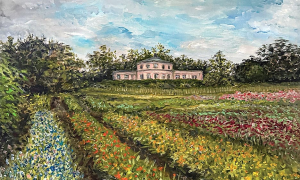Here are 10 jazz ironies:
1. Cool was born on the East Coast (1948). Hard bop came to prominence on the West Coast (1954).
2. Art Tatum and George Shearing, two of the most technically gifted pianists of the late 1940s, couldn't see the keyboard.
3. Bebop--a radical form of mid-1940s jazz--took hold by applying new melody lines to the chord changes of familiar Tin Pan Alley tunes.
4. The bossa nova--Brazil's intoxicating beat of the late 1950s and 1960s--was a fusing of home-grown samba and West Coast jazz.
5. The decision by swing era legend Red Norvo to form a vibes-guitar-bass trio in 1950 inadvertently kicked off West Coast cool. When the Red Norvo Trio went into The Haig in July 1952, there was no need for Los Angeles club owner John Bennett to rent a grand piano for the extended gig. Bennett offered to roll in a cheap studio upright for the other group due to play on Norvo's night off. But Gerry Mulligan waved Bennett off, giving birth to the piano-less quartet.
6. Bebop's anthem, Cherokee, was written by Ray Noble, a British bandleader.
7. The first song simply titled Jazz was written by Chico O'Farrill and recorded by Machito and His Orchestra in 1948. The song Swing was recorded by English bandleader Bert Ambrose and His Orchestra in 1936.
8. In the spring of 1956, the U.S. State Department began sending African-American jazz musicians abroad on tours to tout the virtues of democracy--despite bus-riding and public-dining restrictions imposed on blacks throughout the South.
9. The American Federation of Musicians' strike of 1942 was called to protect big band musicians from growing incursions by records, radio and jukeboxes. Instead of preserving the big bands, the AFM strike resulted in the rise of dozens of independent record labels and small-group jazz. [Pictured: AFM president James Petrillo]
10. Despite being recorded just months after Miles Davis' mostly modal Kind of Blue, Dave Brubeck's Time Out! was not released by Columbia until 1961 for fear that the album's unusual meters would not sell.
This story appears courtesy of JazzWax by Marc Myers.
Copyright © 2026. All rights reserved.


























